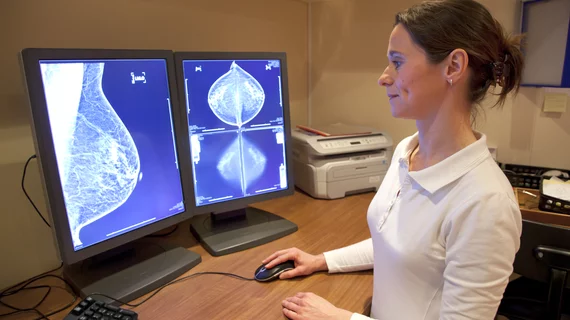Google’s AI outperforms humans in detecting breast cancer
Google’s DeepMind AI system is better at detecting breast cancer than human experts, according to a new study published in Nature.
The findings could help propel more accurate screening results, as the interpretation of mammograms has been subject to false positives and false negatives, according to the researchers from Google Health.
The study included a large-scale dataset of 25,856 mammograms from women in the U.K. and 3,097 mammograms from U.S. women to train the AI system. The system was tested against mammograms of women who had breast cancer or normal follow-up images a year later.
The AI system outperformed both the historical decisions made by radiologists who assessed the mammograms and the decisions of six expert radiologists who interpreted 500 randomly selected cases in the study.
“The area under the receiver operating characteristic curve (AUC-ROC) for the AI system was greater than the AUC-ROC for the average radiologist by an absolute margin of 11.5%,” first author Scott Mayer McKinney, of Google Health, and colleagues wrote in Nature.
The AI system led to a 5.7% and 1.2% reduction in false positives in U.S. and U.K mammograms, respectively. It also had a 9.4% and 2.7% reduction in false negatives.
The findings could help AI detect breast cancer in the future.
“This robust assessment of the AI system paves the way for clinical trials to improve the accuracy and efficiency of breast cancer screening,” McKinney et al. wrote.

